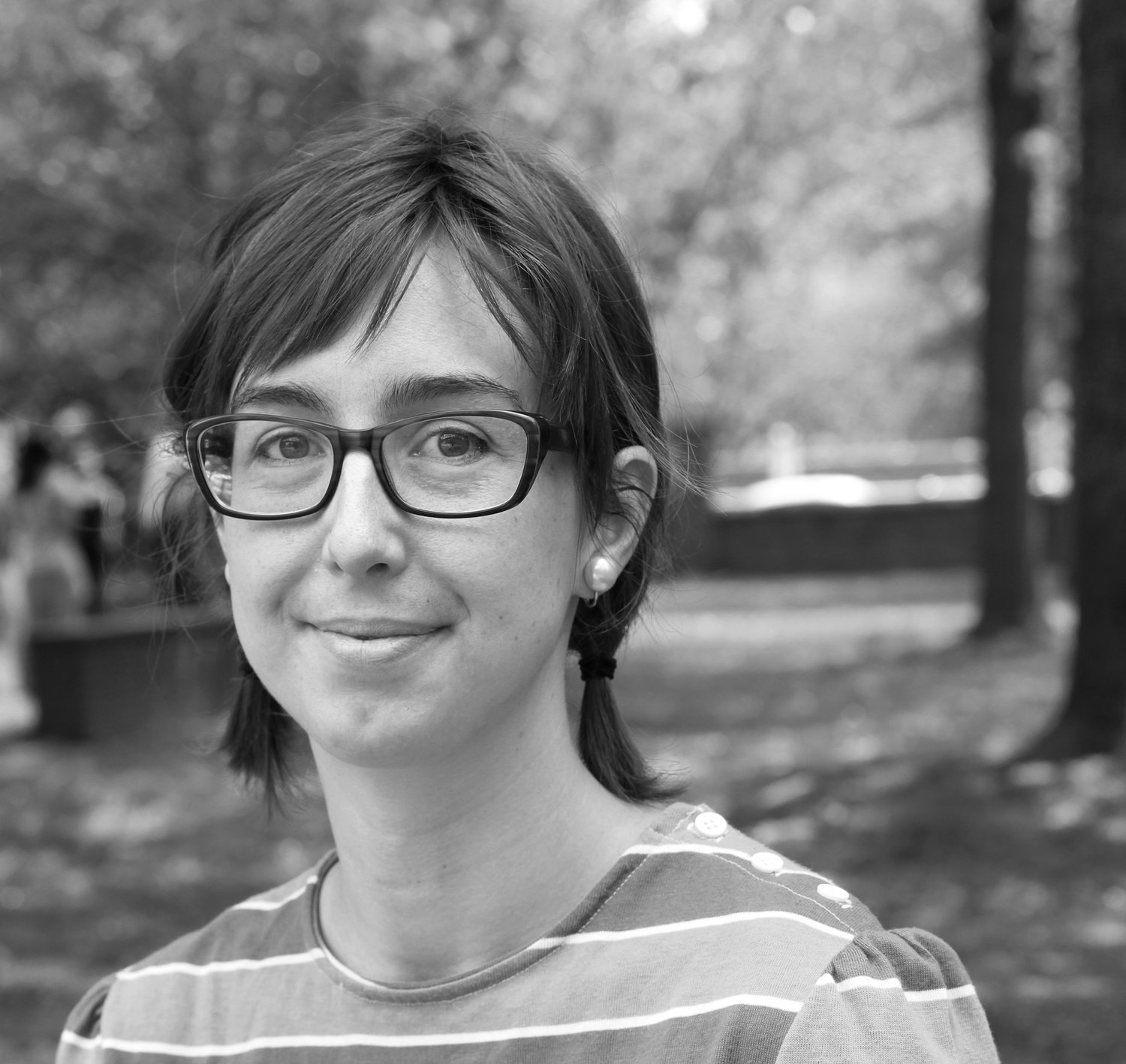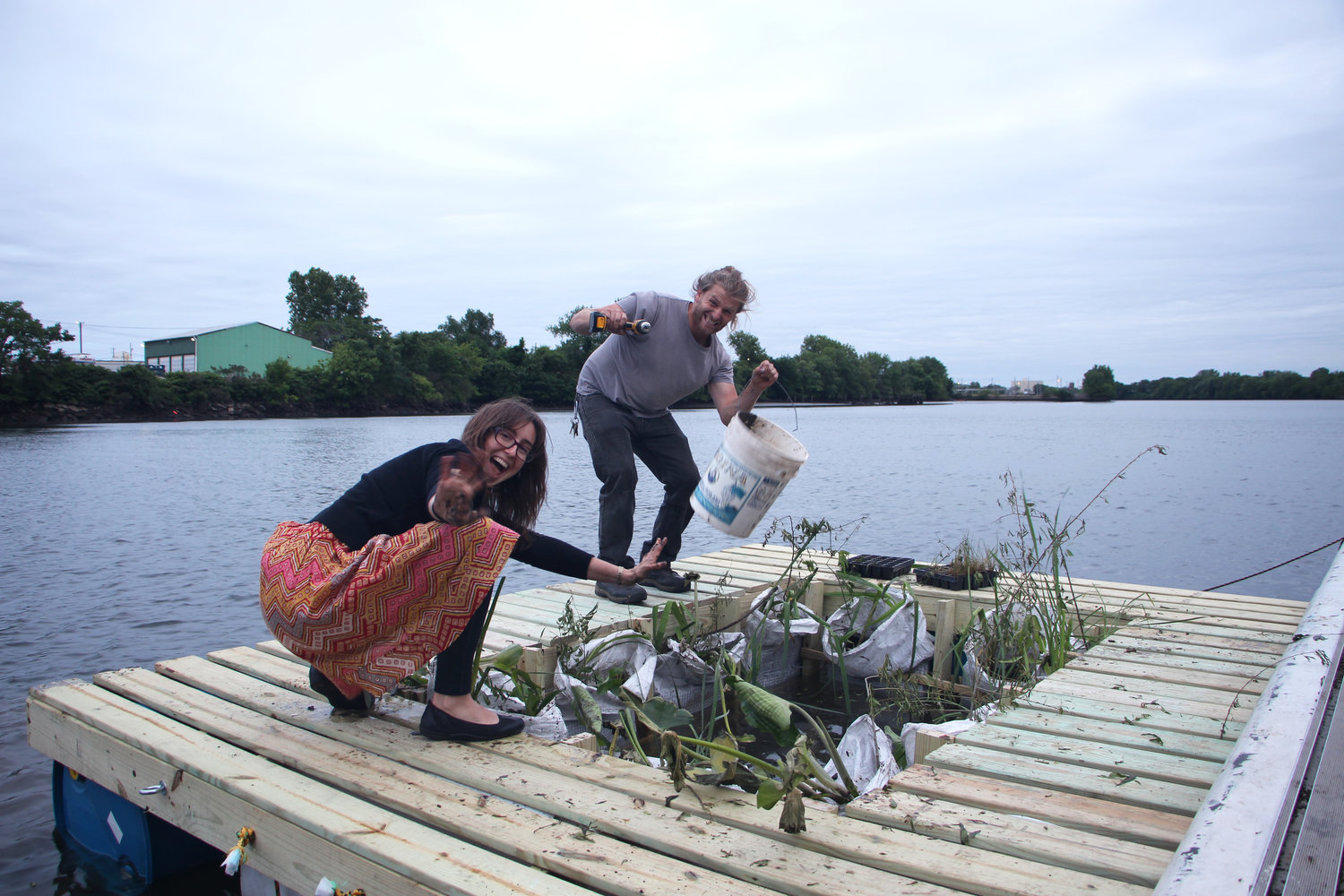Schuylkill Corps Questionnaire: Kate Farquhar
February 6, 2018
Joanne Douglas

Formed in 2016, The Schuylkill River and Urban Waters Research Corps is a public, cooperative research project organized by Peter DeCarlo (Drexel), Danielle Redden (Bartram's Garden), and Bethany Wiggin (Penn). Since its inception the Schuylkill Corps has brought together artists, historians, community organizers, students and scholars together in a bi-weekly seminar to discuss their research and creative practices revolving around one central focal point, the Schuylkill River.
We put together a brief questionnaire for each of our previous seminar participants that summons us back to the river – to share their perspectives, projects, and experiences on urban waters.
Kate Farquhar is a Landscape Designer at Roofmeadow, a landscape architecture and civil engineering firm specializing in innovative green stormwater infrastructure. Her presentation at the Schuylkill Corps Seminar reflected on her time in 2017 when she worked as the coordinator for the Wetland Project and the Ecotopian Toolkit competition, a PPEH led project that invited artists and inventors to propose, design and build their own ecotopian tools, imagining how we all might learn to float–and to live and thrive–on warming and rising river waters along the Lower Schuylkill and elsewhere. Click HERE for more information or to apply to be a 2018 Ecotopian Toolmaker.
Schuylkill Corps: What is your relationship to urban waterways?
Kate Farquhar: I live near the Schuylkill River and walk/jog along Cobbs Creek, by day I work designing green infrastructure and I'm an environmental artist interested in enhancing contact and storytelling between humans, organisms and natural bodies.
SC: How has this shaped or defined your work, research or creative practice?
KF: Philadelphia has a strong regulatory focus on stormwater management. I am trying to guide myself beyond infrastructural design questions and toward relationship-building inquiry among humans, organisms and natural bodies.
SC: What stands out to you about waterways that run through cities?
KF: Here's what I have noticed: waterways often seem to be either 1) completely hidden (piped), 2) somewhat neglected dumping grounds without enough human presence to feel completely safe OR 3) semi-elite, heavily trafficked places. I wonder how to build stable middle-grounds between #2 and #3.
SC: From your perspective, what is the future of urban waterways?
KF: In my view, urban waterways are subject to the same trends as other urban entities (common areas, historic infrastructure, public utilities): subject the to ownership and liability struggles which govern the private realm, subject to gentrification, subject to pollution, interpretation pitfalls by well-meaning stewards. However, I think grassroots, spontaneous and full-contact experiences with waterways reinforce their more radical possibilities: like how rivers and watersheds have been the leading plaintiffs in national and international rights-of-nature cases. I hope that in my lifetime, waterways and their riparians will invent new, more just standards for collective urban living.

Kate Farquhar assists with construction of Eric Blasco and Jacob Rivkin's Bio Pool. one of six designs to win the Ecotopian Toolkit design competition.
Follow the Schuylkill River & Urban Waters Research Corps on Facebook, Instagram and Twitter @SchuylkillCorps to stay updated on news and events.
